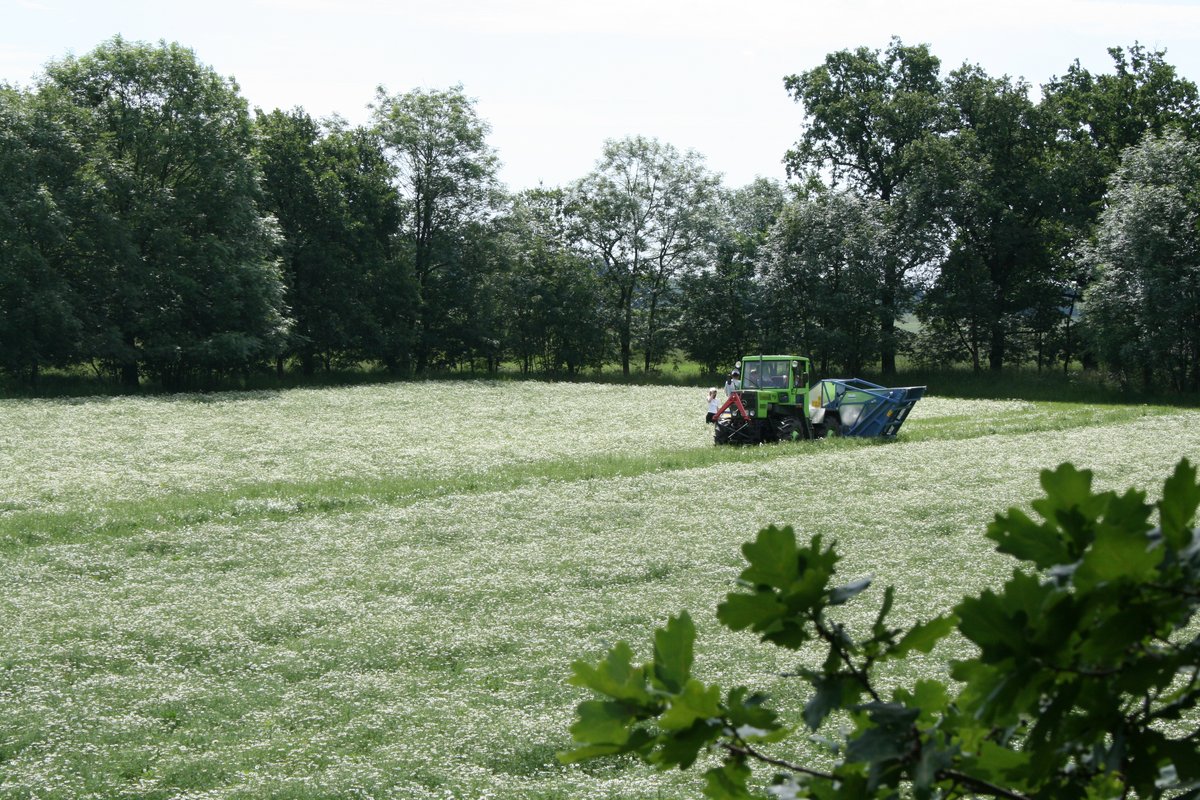Plant-based bioeconomy in Lusatia: Refinement of active substances
Medicinal plants are subject to natural fluctuations in their content of highly effective constituents. However, climate change and low-quality soils are increasingly reducing the concentration of these substances in raw materials. Consequently, the quality of conventionally extracted essential oil is declining. The Phytoextraction research group of the Chair of Process and Plant Technology at BTU Cottbus-Senftenberg aims at developing innovative processes that make the existing active substances almost completely usable, and thus, producing valuable extracts and distillates.
In the project "Development of a process towards structural manipulation of essential oils using the hydrolate phase on the example of the thyme plant (Thymus vulgaris L.)", the researchers are investigating conventional processes, such as distillation, for the production of essential oils. In this approach, the generated water vapour is passed through the thyme raw material. The water vapour is enriched, discharged, and then condensed elsewhere. Due to the difference in density, the active ingredient-rich oil separates from the water and can be extracted. "The condensed-out water has not been used in this type of process so far," says Dr.-Ing. Constantin Jurischka, head of the working group. "However, this water still contains dissolved components of the essential oil." Often, these are the actual valuable substances. They have been always discharged up to now. "The water produced in conventional distillation can be re-circulated in our proposed process, which influences the composition of the essential oil," the scientist describes. "Thus, the resulting oil can be enriched to a defined content of the active ingredient. Subsequently, the product complies with specified standards as well."
In their work, Dr.-Ing. Constantin Jurischka and his team use an extensive toolbox of modular adaptable individual processes. The research of the working group headed by Prof. Dr.-Ing. Harvey Arellano-Garcia aims to identify added-value, plant-based materials and material groups from medicinal and aromatic plants with far-reaching benefits and high economic potential, while at the same time provide a component-conserving refining technology within the shortest possible time.
"Due to uncertain factors such as climate change and future land subsidy policies, the cultivation of medicinal plants that are often not challenging in terms of soil and location and have interesting constituents can provide an alternative source of income," Jurischka said. "Value creation on conventionally more yield-critical areas is intensified and structurally weak regions are strengthened. In addition, innovative processes enable farmers to avoid pesticide use and as a consequence promote biodiversity."
The project "Development of a process towards structural manipulation of essential oils using the hydrolate phase, taking the thyme plant (Thymus vulgaris L.) as an example" is being funded by the Agency for Renewable Resources (FNR) until February 2023. The project sponsor is the Federal Ministry of Food and Agriculture.

